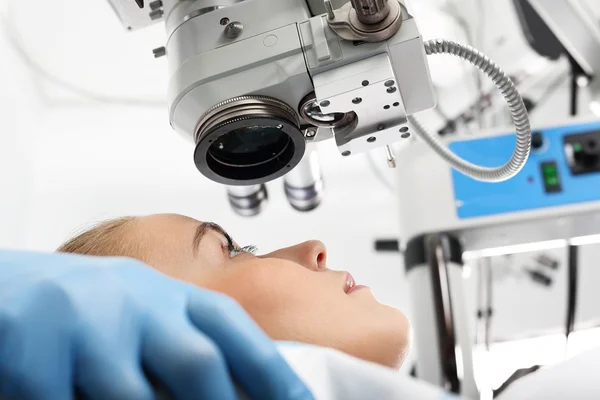The hard part of preparation, appointments, and surgery is now over. Your focus turns to recovery and getting back to your daily schedule. Recovering from cataract surgery depends on how seriously you work on the aftercare requirements.
You may recover your vision a day after the surgery. But without proper care, you may develop complications that extend your recovery period.
Recovering From Cataract Surgery
According to specialists, it takes at least four weeks to recover from cataract surgery completely. You regain your vision within a day after surgery. However, you may have blurry vision in the subsequent weeks as you continue healing physically.
Understanding what it takes to have a complication-free recovery period is an important part of quick recovery. Complications like having blurry vision or headaches weeks after your surgery indicate something is wrong with your recovery.
Some predisposing factors like old age or previous surgeries can extend your recovery period. Overexerting your body and eye during this time can result in complications increasing your recuperation period.
What Causes an Extended Recovery Period?
An extended recovery period occurs when you don’t adhere to the doctor’s instructions. A recovery period of 3 months or more is considered a long recuperation period.
Other factors, such as returning to work sooner or exercising, could affect how your eyes re-adjust after the surgery. Be careful to monitor and test your eyes for anything that feels uncomfortable. Watch out for these common causes of an extended recovery period:
Chores With a Higher Energy Demand
Getting back to work too soon or engaging in activities like bending or carrying heavy loads can strain your eyes. Your busy schedule can affect your recovery process. Ensure you use eye drops as prescribed and keep your chores to a minimum as you recover.
Consult your doctor on any restrictions within your work environment. You should also avoid using makeup on the eye to prevent infections affecting recovery.
Outdoor Activities
Returning to exercising, traveling, shopping, or moving in dusty and crowded areas affects your recovery. Dusty areas worsen your itchy and dry eyes, making your recovery period uncomfortable. It increases the risk of trauma to your eye, keeping you out for longer than expected.
Activities like swimming expose your eyes to other chemicals that extend your recovery period. Be aware of your surroundings by analyzing where you visit. If your workplace has a lot of dust or debris, consider delaying your return to work. This allows your eyes to recover before exposing them to potentially harmful particles.
Poor Eyecare
If you don’t use your eye drops regularly, your eyes might take a long time to recover. Consistent use of eye drops within the first two months of surgery reduces eye dryness, redness, or itchiness, shortening the healing period.
Honor your appointments with your doctor as you monitor your progress. Ensure you report any abnormalities to the doctor for quick action to reduce the healing process.
How Can You Shorten the Recovery Period?
To shorten your recovery period, complete the recovery steps recommended by your doctor. Here are some tips that can help you shorten your recovery period:
- Follow your post-surgery instructions from your doctor.
- Manage any previous eye condition to avoid flares or complications during recovery.
- Use your eye drops consistently.
- Avoid lifting heavy things.
- Take your time when considering starting normal activities like exercising, swimming, meeting friends, etc.
- Avoid rubbing your eyes.
Managing Your Cataract Recovery Period
Cataract surgery requires you to plan for what happens before and after the procedure. Carefully managing your post-surgery symptoms determines how long your recovery takes. Find a capable ophthalmologist’s office to ensure you have the best experience possible with your eye surgery.

